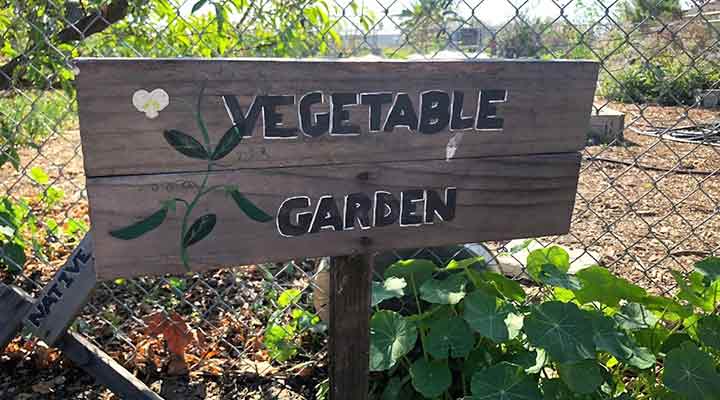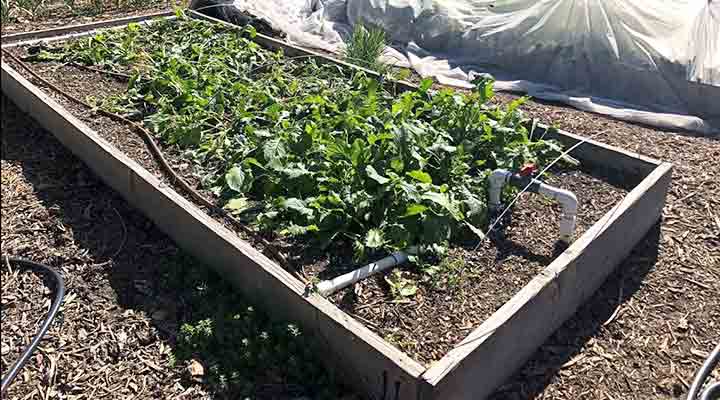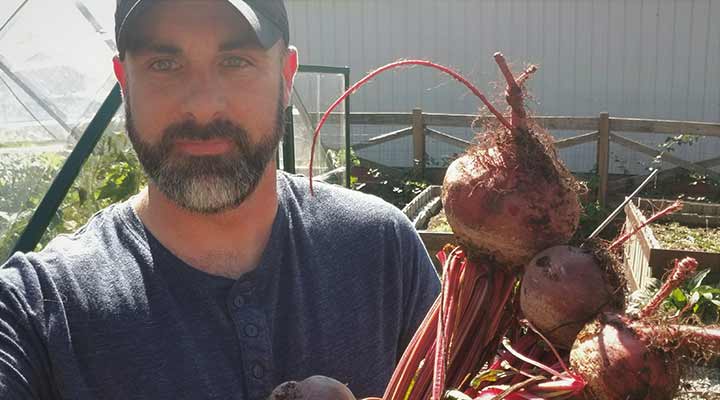
Vegetable Gardening Tips for Beginners
Mar 31, 2023 / Alyssa Duranty
Between congested freeways and concrete-covered business complexes, Mary MacVean tends to more than an acre of green, growing plants while teaching vegetable gardening tips for beginners to residents at the neighboring Bell Shelter in Southern California.
MacVean, a Master Gardener and executive director of Grow Good, shows novice gardeners how to grow delicious produce from just seeds.
“When you garden, you get to be outside and connected to the land and your food,”; she said. “Putting something in the ground and watching it turn into food is amazing.”;
If you’ve recently moved into a home with yard space, or perhaps newly-motivated homeowner ready to grow your own food, keep reading for our expert tips! We visited MacVean’s garden, and we talked to an Indiana homesteader for the best advice to help your vegetables make it from plot to plate.
Choose Easy-to-Grow Vegetables for Your First Garden
Start your first vegetable garden with easy-to-grow vegetables – like lettuce, onions and radishes – so you can get the hang of caring for them before moving on to trickier plants, said MacVean.
“It’s much more rewarding to grow stuff that’s easy and will likely give you food,”; she said.
Vegetables like cauliflower are susceptible to infection and can discourage novice gardeners.
“Start small and simple,”; said Harold Thornbro of Small Town Homestead. He started growing his own produce after a colon cancer diagnosis in 2012 turned him toward a healthy lifestyle.
“Tomatoes are great to start with, and lettuce mixes. Leafy vegetables are the easiest to grow. Lettuce, spinach, kale,”; he said. “Stick with things you want to eat and that you like, and things that will grow well in your area. Not everything will grow well in your area.”;
Both experts recommend buying a detailed seed catalog like Seed Savers or Baker Creek Seeds before choosing your crop. It will tell you how hard it will be to grow, when to plant it and in what climate.
Plants Your Vegetable Garden in a Very Sunny Spot
Your seeds will need a lot of sunlight to get enough nutrients to grow into strong plants. So make sure you plant them in a space that gets at least six hours of direct sunlight every day, said Thornbro.
“Before you go plotting out everything and dropping stuff in the ground, you want to make sure they have a lot of sun,”; he said. “You have to map out an area that is getting six – or more like eight hours of sunlight a day.”;
When you buy seeds, the packaging should tell you how many hours of sun it will need. You’ll want to plant seeds with similar environment needs together for a successful crop, said MacVean.
“Go to a good nursery and ask a lot of questions,”; she said. “You don’t necessarily have to buy seeds from them if you find them cheaper somewhere else, but they’re going to be good experts to talk to.”;
You should also consult local gardening experts to get advice on what type of soil to buy, as different dirt will help vegetables grow in different climates.
Vegetable Gardening Tips for Beginners: Water Often
Since your seeds will be getting a lot of sunshine, you will need a lot of water to help them become productive plants!
“Under-watering plants can be an easy mistake to make,”; said MacVean. “You want to give them a good soaking and let the soil dry out before soaking them again. You can use a ruler or your finger to make sure water is going down to deep roots.”;
And don’t wait too long to check your dirt for dryness after watering it, warned Thonbro.
“Water deep, and water towards the ground,”; he said. “You want the water to go five to six inches deep.”;
Growing vegetables may take time and care, but both of our experts agree that the reward is well worth it.
“Gardening will change your health, your view about the current food system and it will cause you to see the beauty in the natural way it all works,”; said Thornbro. “Ultimately it will change your whole perspective on life.”;
Bottom photo courtesy of Harold Thonbro.









